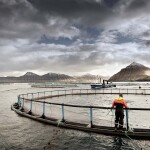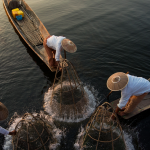EU fishing industry group Europêche responded on 14 March to an article in The Guardian (U.K) that claims a new European commission proposal leaked to the news organization reveals plans for much looser regulations of the Baltic cod fishery.
The Guardian article said the commission is planning to allow exemptions on catch limits on Western Baltic cod and North Sea sole expected to become mandatory by 2020. That move would threaten the sustainability of the fisheries, according to Markus Knigge, an advisor to the Pew Trust, who is quoted in the article.
“This proposal would annihilate the common fisheries policy goal of ending overfishing by 2020,” Knigge said. “It is of tremendous importance. It is a real breaking point. The commission has already requested similar ranges for fish in the North Sea and northwest waters and if this text is accepted for the Baltic, proposals will follow there too.”
However, Europêche officials criticized many of the claims made by environmental groups following the release of the article.
“We cannot in Europe be so protective that we underexploit our resources and compensate by importing the necessary food,” Europêche President Javier Garat said. “We have perhaps been fishing above sustainable limits for a period in the past, but the ship has turned, and scientists from ICES have documented that by saying stocks have reacted positively and that we are observing growing trends in stock sizes for most of the commercially important stocks. We cannot stand by and watch our industry’s reputation be unfairly trashed like this and it is important that the press reflect the facts and not selective quotation, misrepresentation and blatant untruths."
The Guardian article claims the proposed European commission plans replace the existing maximum sustainable yield (MSY) plan, which imposes a ceiling on annual catch amounts, with a flexible formula containing upper and lower ranges.
Europêche’s rebuttal to the article argues that efforts to tie sustainability claims to fishing levels above the MSY are misleading, as the MSY is “a theory for economic optimization and has no relevance for stock protection.”
“Many of the exploited stocks in Northern Europe are currently fished at MSY and more enter the realm annually – in very good time to meet the 2020 target,” Europêche’s statement said.
Michael Anderson, a Danish member of Europêche, responded to claims made by the Pew Charitable Trust in the article that catches of some fish in the Baltic Sea would increase well above levels recommended by scientists under the new plan.
“Whilst the legal aspects of managing fisheries are of significant importance, fishing is much more than biology,” Anderson said. “For most people, 'overfishing' means that the fishery is taking more fish than is estimated to be sustainable. It is important to point out here that for the great majority of fish stocks in the Northern parts of Europe (and certainly in the Baltic Sea), the current level of fishing is within what scientists in ICES estimate as being 'safe biological limits.’”
In updating regulations on the Baltic fisheries, the European commission should allow for flexibility to accommodate changes in fish stocks caused by natural events that are “beyond human control,” the Europêche statement said.
“This will of course have to take place within a precautionary frameworks since nature is not well suited for strict regulations and spreadsheets,” it said.






